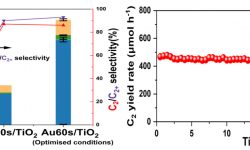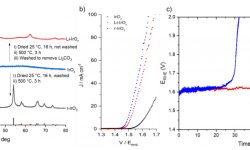Category: Summer Conf 2024 abstracts
Developing electrodeposition methods for directly synthesizing Ni-based catalysts on porous carbon transport layers (PTLs) for application in zero gap AEM electrolysers
Photoelectrochemical Devices for Space Applications
Methanol diffusion dynamics in microporous materials as a function of acid site density by quasi-elastic neutron scattering (QENS)
Microporous materials SAPO-34 and ZSM-5 play a crucial role in various petrochemical and environmental processes such as methanol to hydrocarbons (MTH) which enables replacement of fossil fuels with carbon neutral…
Toward uniform structurization of solid catalysts for achieving high performance and for better understanding of catalysis
Using in-depth characterization techniques to explore the behaviour and structure of catalysts
There are many common questions in heterogeneous catalysis including what influence does porosity play? And, what is the catalyst actually doing under reaction conditions? While lab-based instruments can provide some…
Towards a rational design of novel green catalysis: A computational perspective
Introduction Methane emissions now account for ~30 percent of current anthropogenic warming. Centralised methane capture and conversion, from methane rich sources such as waste processing and oil production, is an…











